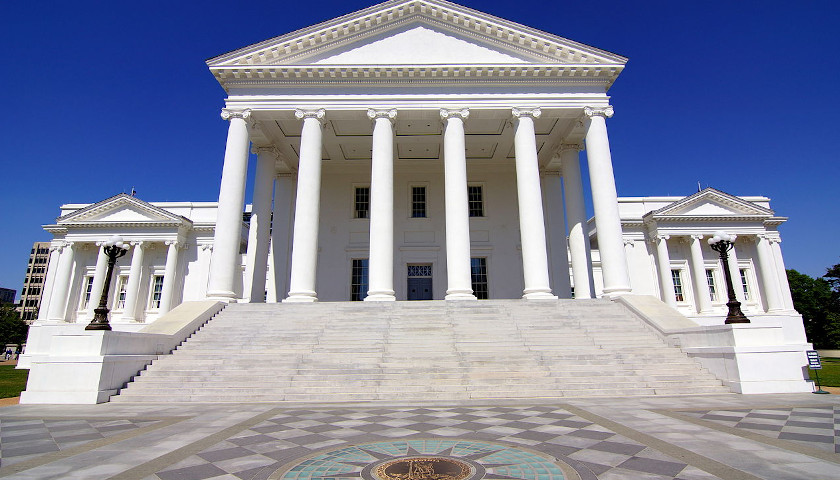To vote in the Republican Party of Virginia’s (RPV) nomination of its 2021 candidates, citizens will have to be delegates to the nomination convention. Selecting delegates is a process controlled by local branches of the GOP, called units.
Former Chair of the Republican Party of Norfolk Pam Brown said the easiest way to start the process is to contact the local unit chairman. She said, “You can find that on the RPV site, they have linked email addresses to all the local unit chair members, and there’s 110 of them to contact.”
Would-be delegates have to file paperwork with their unit, which will then select the delegates at a mass meeting. Delegates can attend the meeting, but it is not required.
Those who want to file should visit their local unit’s website, according to Prince William County GOP Vice-Chairman Willie Deutsch. “They’re going to have a form there, that form will have a deadline and a place to mail it to. [The applicant] will submit it by that deadline and as long as he hasn’t been a Democrat in the past, he will be approved.”
Deutsch said there are caps on how many delegates a unit can send, but that it is rare to hit that limit. If someone with a history as a Democrat wants to be a delegate, they also have to swear not to engage in Democratic activities. After delegates are confirmed at the mass meeting, the list of delegates will be turned over to the campaigns, who will lobby the delegates for votes.
Each unit has different filing forms and dates, but the local call for delegates can’t come out until the RPV governing body, the State Central Committee (SCC), issues its own call specifying the exact format and timing of the convention. The convention is expected to be unassembled, meaning that delegates will be able to drop off their ranked-choice ballots at nearby locations instead of having to drive to one location with thousands of other delegates.
“The process has yet to be established, but I hope and expect it will be as simple and open as possible,” SCC member Mauricio Tamargo said.
Delegates do not have to pay to vote for a candidate for public office, according to RPV Chair Rich Anderson. “RPV often asks for payment of a voluntary fee, but no one has to pay as a condition for voting,” Anderson said.
Deutsch said, “It is illegal to require someone to pay a fee to vote for public office. The courts ruled it a poll tax in the ’90s.”
However, delegates who wish to vote for internal party offices can be required to pay a fee. For example, the 2020 RPV call for delegates mandated a $35 fee for delegates voting on party officials. “To assist the operations of the Republican Party of Virginia in supporting unit mass meetings and conventions, and the administration of the state Convention, a Delegate Registration Fee of Thirty-Five Dollars ($35.00) is requested of each person standing for election as a delegate or alternate delegate to the state Convention,” the call states.
Brown and Anderson both said it was common for delegates to pay fees.
After the SCC issues its call, campaigns will reach out to voters across the state trying to line up delegates who will vote for their candidate. Delegates are under no obligation to vote for any specific person, but typically they will vote for the campaign that helped them register to be a delegate.
Different regions of the state are assigned a different amount of votes, using a formula based off Republican party turnout in the previous general election. Then, those votes are split up among the delegates who register to represent that unit. For example, Richmond City was allocated 111 votes in 2020. No matter how many delegates attended the convention, those votes were split across those delegates. In rare cases, that can lead to a small amount of delegates being worth a lot of votes.
Campaign Strategy
As a result, a major strategic element of the campaign involves registering delegates. Campaigns need to start contacting lists of likely delegates, and need to have a strong presence at local party meetings. Those lists are valuable, and campaigns keep lists from previous years. That’s why campaigns need experience with the convention process; Brown said that a campaign without that experience should hire a strategist with a database of previous delegates and other Republican supporters.
“As we get into the turn of the new year, every campaign running statewide will be building the list of which unit has deadlines when, and have the forms to push people to file,” Deutsch said.
“I would go after the big units first,” Brown said. “Anybody who’s running for governor would probably [start] with the Fairfax, northern Virginia units, those huge units.”
Although it changes every year, in 2020 Fairfax County had 1,099 votes. Virginia Beach had 633, Chesterfield County had 573, Prince William County had 473, and Loudoun County had 465. Many other units had less than 100 votes.
Brown continued, “Then I would go after the Virginia Beach and Chesapeake units next. And then I would go after the larger Richmond units thirdly.”
Virtual party meetings are an extra hurdle for campaigns trying to sign up delegates, since normally statewide campaigns would pay staff or have volunteers at local unit meetings to recruit delegates for their candidate.
Brown said the key this year will be who can leverage platforms like Facebook Live and Zoom.
“It’s going to require a lot of thought and a lot of creativity to try campaigning in this kind of environment,” she said. “Somebody has got to really know their stuff from a virtual perspective, because this is so far out of the norm.”
– – –
Eric Burk is a reporter at The Virginia Star and the Star News Digital Network. Email tips to [email protected].
Photo “Virginia Capitol” by Skip Plitt – C’ville Photography. CC BY-SA 3.0.




